10. Judas Priest - Firepower (2018)
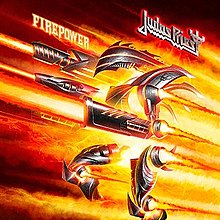
While Sabbath remain the genre’s undisputed originators, Judas Priest have contributed more than any other band to heavy metal’s sound, visuals, vocabulary and culture over the last four decades.
Since Rob Halford’s return to the fold in 1999 not everything they have released has raised the rafters. By the time 2018 arrived, they could have justifiably joined contemporaries in plundering the nostalgia circuit. Instead, they made their best album in 25 years.
It might sound obvious, but Firepower’s brilliance lay in its songs. Comfortable in their own studded leather clothes, this was the sound of Judas Priest reconnecting with what they do best: honing and crafting songs until they hit peak metallic efficacy and, for the most part, leaving experimentation to one side.
The first single, Lightning Strike, was rapturously received for precisely this reason; it sounded like classic Priest, but updated and given a 21st-century power boost. Halford sounded back on top form, Richie Faulkner and fellow six-stringer Glenn Tipton served up glorious solos and some sublime twin-lead histrionics, the rhythm section was tighter than a shrew’s anus and it was all done and dusted within three and a half minutes.
It was heavy metal perfection, basically, and it was a trick they pulled off repeatedly on Firepower; not a single one of its 13 songs passed without delivering a giant chorus and at least one riff that made you want bang your head until it snaps off.
It was the best album Judas Priest have made since Painkiller. Yes – that good. If you love heavy metal as much as they do, you need this immaculate celebration of what is, let’s face it, the whole reason we’re all here in the first place.
Our score: 9/10
9. Kate Bush - 50 Words For Snow (2011)
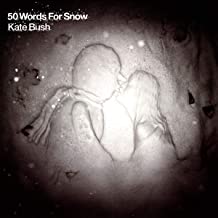
Typical: you wait years for a new Kate Bush album, then in 2011 two came along at once. Revitalised by her archive makeover project Director’s Cut, the rock icon returned with this expansive and confident wintry symphony.
Bush’s previous original album, Aerial in 2005, was rapturously received but leaned dangerously far into overly polished, Peter Gabriel-style ambi-rock maturity. Thankfully, 50 Words For Snow was a more supple and experimental affair, with a contemporary chamber-pop sound grounded in crisp piano, minimal percussion and light-touch electronics.
Of course, old-school Bush fans expecting a return to hook-heavy witch-pop sensuality were disappointed. 50 Word For Snow's compositions – none below seven minutes long – unravelled into billowing jazz-rock soundscapes interwoven with fragmentary narratives delivered in a range of voices, from shrill trilling to Laurie Anderson-style cooing.
Elton John duetted warmly on Snowed In At Wheeler Street, a soulful fairy tale of New York, while Stephen Fry shared the title track, a whimsical Floydian folly and arguably the only failed experiment here.
Most strikingly, instead of revisiting her 1970s prog-pop roots, Bush tapped a 21st century vein of pastoral Englishness that chimed with avant-folk excursions by PJ Harvey and Radiohead.
The snow queen of Albion’s Electric Eden was back to reclaim her throne.
Our score: 7/10
8. Idles - Joy As An Act of Resistance (2018)
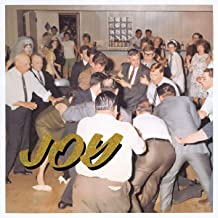
Following their 2017 debut album Brutalism, Idles found themselves in a tricky, if familiar, position: as interest in the band mounted, they struggled with the pressures of delivering an anticipated second album. Then tragedy engulfed vocalist Joe Talbot when he lost his baby daughter. His concerns about the band were thrown into sharp perspective.
That second album became an honest, potent response to trauma – but one which, perhaps surprisingly, unearthed hope in the depths of its grief. Lead-off single Danny Nedelko was a celebration of the support that can be found within communities, and owed a debt to Sham 69 with its raucous football chant chorus. Never Fight A Man With A Perm, Gram Rock and Samaritans each challenged suffocating stereotypes of modern masculinity, set to a soundtrack of taught, infectious post-punk.
Then there was June. While Talbot’s daughter permeated the record, this is where her loss was addressed directly. ‘Dreams can be so cruel sometimes/I dreamt I kissed your crying eyes’ came the song’s opening couplet, before its sombre refrain ‘Baby shoes, for sale, never worn’.
This album was a heart-breaking but jubilant exploration of joy, honesty, fragility and expression as our most powerful means of human resistance.
Our score: 9/10
7. Steven Wilson - Hand. Cannot. Erase (2015)
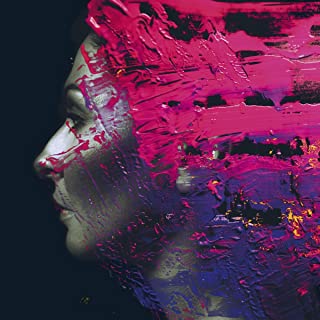
In many ways, Steven Wilson has become the bridge between prog’s classic era and its present-day incarnation. Not for nothing was he entrusted by the likes of Yes, King Crimson and Tull with providing faithful new 5.1 surround-sound versions of such early-70s prog sacred texts as In The Court Of The Crimson King, Close To The Edge and Aqualung. Likewise his music bears echoes of prog’s legends while also having one foot firmly in the modern (prog) world of Radiohead and Opeth.
If any Steven Wilson album was going to delight both generations of prog, and even reach beyond that genre’s scope, to rock fans in general, it was his fourth solo album, Hand. Cannot. Erase. It was a tour de force of experimental music making, from the lyrical to the lacerating, with passages that enchanted and others that singed the synapses.
It took the listener on a journey. It was often a bumpy ride. Wilson was “completely spellbound” by Dreams Of A Life, the 2011 drama-documentary about the tragic death of Joyce Vincent – an attractive, popular and ostensibly successful 38-year-old woman who died alone, and whose decomposing body was discovered, in January 2006, beside the flickering light of a still-functioning television in a North London bedsit, having lain there for more than two years.
He used this grimly poignant event for an evocation of isolation and alienation in this super-connected social media world. The album was book-ended by two two-minute instrumentals, heightening the impression of Hand. Cannot. Erase. as a concept: First Regret, a ballad, opened with the sound of children’s laughter, the sort of banal hubbub that would have been heard outside Vincent’s flat; Ascendent Here On… was the elegiacal closer, featuring plangent piano chords and a boy choir. In between there was music both mournful and majestic.
But the puzzling demise of a beautiful young woman was merely the launch pad for a series of musical and lyrical forays that were quite stunning in their scale and achievement. Not sure what Joyce Vincent would have made of it – she was more of a soul and funk girl – but lovers of rock both classic and current were blown away.
Our score: 8/10
6. Queens Of The Stone Age - ...Like Clockwork (2013)
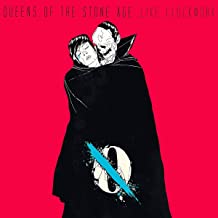
The myth and majesty of Queens Of The Stone Age was always in their immortality. These Palm Desert legends could neck all of the grottiest drugs known to humanity in one snort with nary a tweak of the blood pressure, bludgeon the sturdiest canyon rock from their instruments for decades without ever tiring, and crush lesser rock bands between their fingers like crackers. They’d been rocking since the stone age, and they would rock until the next. Or so we, and they, thought.
Then in 2010 their mountain of a mainman Josh Homme briefly died on the operating table during routine surgery and was revived with a fresh perspective on his life and music.
The subsequent sixth album, several years delayed by the mojo-losing effects of Homme’s months of recovery, was wracked with vulnerability, insecurity, pained defiance and pleas for direction, protection and the comfort of loved ones. ‘If life is but a dream then wake me,’ Homme growled on ominous, pounding opener Keep Your Eyes Peeled, before announcing on sultry piano ballad The Vampyre Of Time And Memory, ‘I want God to come and take me home.’
With a second chance at life came a fresh urgency to grasp its possibilities. So, leaning on a host of rock pals for support (Dave Grohl, Trent Reznor, Arctic Monkeys’ Alex Turner, Scissor Sisters’ Jake Shears, estranged ex-bassist Nick Oliveri and Elton John), Homme varied his songbook to take in the insurrectionist poetry of If I Had A Tail, the psychedelic ventilator burbles of Kalopsia, the Muse squelches of Smooth Sailing and a beefed-up take on Blur’s Coffee And TV called I Sat By The Ocean.
Homme’s contributors were generally buried beneath his reborn sandstorm rock, although Elton emerging from the swarm of blustery demons on Fairweather Friend to howl the title was a moment of unintentional comedy. But their rejuvenating effects made this the most rounded and melodic QOTSA album in a decade, a triumph snatched from the mortuary doors.
Our score: 9/10
5. David Bowie - Blackstar
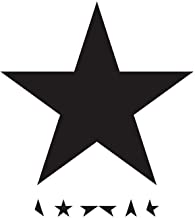
Can lightning strike twice? As discussed previously in this list, Bowie’s 2013 comeback album The Next Day was as much a testament to brilliant marketing as musical skill, arriving from nowhere after a decade of silence, secrecy and sinister rumours. It topped the charts globally, earning the legendary rock recluse his first UK No.1 in 20 years, and helped make the David Bowie Is… exhibition a worldwide blockbuster. A sell-out tour without the Thin White Duke even having to leave his New York bunker? Genius.
Released on Bowie’s 69th birthday on January 8, Blackstar arrived with a little more notice and background information than The Next Day, but not much. But its biggest trick was still to come. Two days after its release, Bowie died of liver cancer. It became clear that Blackstar was his goodbye to us all.
As news broke of Bowie's death, Blackstar morphed in front of our very eyes. A direct, potent statement, the hints he'd left throughout The Next Day and Blackstar concerning his own mortality took on a stony new gravity. Abstract ruminations on death and mourning became the clear sound of a man grappling with the fact he, himself, was dying.
Blackstar began with its title track, a 10-minute mini-symphony of shifting movements and Middle Eastern melodies cloaked in jazzy electronica and muscular beats. Bowie delivered the ominous, quasi-Biblical lyric like an incantation. Then the music changed mood and a beautiful pop ballad emerged from the maelstrom, an elegy about death and renewal, and fallen angels. A daunting musical monolith at first, this dense sonic tapestry revealed more and more treasure with each listen.
Likewise, the climactic I Can’t Give Everything Away was six minutes of heart-swelling widescreen melodrama that built into an Absolute Beginners-sized epic. Swept along by orchestral strings, a lonely harmonica and liquid guitar solos that recall Robert Fripp’s classic Bowie collaborations, this felt like a sweet reward sitting right at the end of Bowie's career.
With Blackstar, Bowie went deeper, making his most adventurous and uncompromising album since his classic run of Brian Eno collaborations. Fitting for a man who'd never compromised his artistic vision – and refused to do so right until the very end.
"It’s an extraordinary album, a fantastic ending to his career, and it could have been the start of fresh adventures for him, but it’s a wonderful legacy to leave because it was completely uncompromising and idealistic and very beautiful at the same time," Tim Bowness told us of Blackstar – his favourite album of the last decade. "I heard it a day before he died, and while I was listening I thought ‘he’s definitely dying’ because there were so many clues in the lyrics.
"But it’s an incredibly expansive and eclectic album, but it also manages to have focus. It’s completely imprinted with Bowie’s identity."
Our score: 7/10
4. Foo Fighters - Wasting Light (2011)
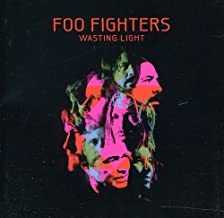
Recorded on analog tape with no computers and no software, in the garage of Dave Grohl’s San Fernando Valley home, Wasting Light was Foo Fighters’ attempt to return to the nuts and gristle of proper bad-ass rocking.
Removing the gloss and shimmer from albums was in itself a contemporary trend around the beginning of the decade, but it turned out the no fuss approach suited the Foos well.
This album sounded a good deal heavier and barer than the Foos had managed before, and much closer to their live sound without succumbing to all out riffing – something that must have been tempting considering their hallowed position and the close proximity of all those power tools.
In a strange way, the Foo Fighters had become the people’s rock band by 2011 – a group who united casual music fans with obsessives who could tell you the middle names of everyone who ever played with Thin Lizzy. There were many reasons for this – one is that Grohl never took himself too seriously, another is that he never forgot the importance of a good chorus, he always surrounded himself with class musicians, and his former band Nirvana remain the lingua franca of all modern rock.
Since its release, Wasting Light might just have come closest to becoming Foo Fighters' true classic album. Occasional live guitarist Pat Smear (who played live for Nirvana just prior to Kurt Cobain’s suicide) rejoined the band as a core member, bringing with him a far more muscular and wiry sound, and seemingly freeing Grohl up for more howling at the moon action. White Limo was a speeding shredder that allowed Grohl to scream his lungs out, Miss The Misery a charging epic that climaxed in an unbridling collision of squealing guitar and grizzled barking. Masterful stuff.
There were of course the crowd pleasing anthems – These Days was an instant classic that adhered to the quiet-bit/loud-bit equation with gusto, Dear Rosemary featured a stunning duet with Hüsker Dü singer Bob Mould, and Walk was a gigantic motivational triumph-over-adversity rocker. There was also a Nirvana reunion of sorts, with Krist Novoselic contributing bass and accordion to I Should Have Known – a mournful blockbuster that was relentlessly interpreted as being about Grohl’s past.
Most bands struggle to follow a Greatest Hits album. Foo Fighters followed theirs with a record that sounded like another Greatest Hits album. Unstoppable.
Our score: 8/10
3. Iron Maiden - The Book Of Souls (2015)
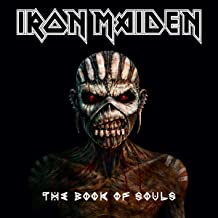
A new Iron Maiden album is always a big event, not least because the band have somehow sustained a startling level of popularity for the vast majority of their three decades.
The Book Of Souls proved why. The sound of a band at the peak of their powers – both individual and collective – it’s hard to think of another band of this vintage that would have been capable of sounding so vital and inspired.
It began with one of two songs written solely by Bruce Dickinson. If Eternity Should Fail started with an eerie, almost psychedelic intro, the air raid siren’s restrained tones floating in shimmering space, before the first of countless towering riffs crashed in. Dark in tone and texture and a dash heavier than Maiden had ever sounded before, its eight-and-a-half minutes rushed by in what seemed like half that amount, soaring choruses and a typically deft change of pace midway through adding bite to the barrage.
The Book Of Souls was doubtless celebrated most for its epics. The Red And The Black was Steve Harris’ only sole composition here, but it was one of the most exhilarating and fluid things he'd ever written; nearly 14 minutes of interwoven rhythms and riffs, a brief nod to the dramatic thud of Flight Of Icarus here, a dewy-eyed salute to Thin Lizzy there and a healthy slab of mob-friendly backing vocals that ensured this became an immediate live favourite when Maiden took The Book Of Souls out on the road.
The same went for the title track, an almost ludicrously grandiose and theatrical affair that crammed more smart ideas into its ten-and-a-half minutes than any band this enduring should have had left in the tank at this point.
So far, so brilliant. And yet even the most wildly optimistic Maiden fan might have found themselves momentarily gobsmacked by The Book Of Souls’ conclusion. The longest song the band had ever recorded, Empire Of The Clouds was essentially an 18-minute heavy metal opera, replete with Dickinson on piano for the first time and sumptuous orchestral flourishes that added to the song’s cinematic feel.
Is there anything that Iron Maiden can’t do? The Book Of Souls suggested not. Given that it sounded nothing like the work of a band nearing the end of their love affair with music, the future may even hold greater wonders. Bloody hell.
Our score: 9/10
2. Tool - Fear Inoculum (2019)
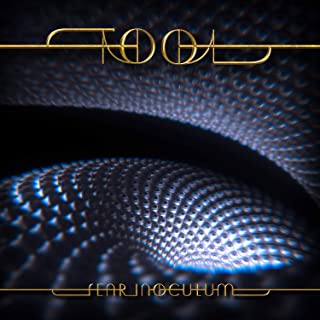
The title 'Fear Inoculum’ indicates vaccinating yourself against fear, and Tool said it was a message to themselves to ignore critics, especially given the weight of expectation that had built up around this record – their first in 13 years. Rabid fans had long been hounding the band about whether new music would ever come at all.
The LA quartet wrote the album over a period of three years, but the origins go back to scraps jammed on the 10,000 Days tour over a decade ago, and there was a meticulous complexity born of this gestation period.
Clocking in at more than 80 minutes across nine songs, three of which were instrumental interludes, Fear Inoculum was a hypnotic prog odyssey – Tool taken to their logical conclusion. The title track opened proceedings, Tool’s characteristic tabla and polyrhythms looping over and over as Maynard James Keenan sang of exhaling his contagion. This reference to the breath flowed into Pneuma (from philosophy: a person’s vital spirit, soul or creative energy), where he sang, ‘We are one breath, one word, one spark’ – a return to the theme of interconnectivity they explored on 2001’s psychedelic Lateralus.
The riffs repeated in such a way that it was like being part of an intense, shared ritual. Invincible and Descending (broken only by spacey, bass-y interlude Legion Inoculant) had already been played on tour by the time the album dropped. The former, about a ‘warrior struggling to remain relevant’ – make of that what you will, given their recorded absence – was the closest thing to a conventional single, though it confused with its multiple false endings.
But if Tool in 2019 felt more about acceptance and less about anger, there was still Culling Voices, seemingly about the negative conversations with people we concoct in our heads. It built from a whisper to a crescendo, where Maynard’s repeated yell of ‘Don’t you dare point that at me!’ brought back some of their early fire. 7empest was also scathing, littered with guitar squeals and leading with the line, ‘Keep calm, here we go again’.
For all the seriousness, there was Tool humour at play, too. One interlude was a Danny Carey drum solo wrapped in brilliantly warped electronics – named Chocolate Chip Trip. The interlude that closed the album, Mockingbeat, featured chirping birds and recalled the crickets at the end of first album Undertow.
Fear Inoculum was an intricate record that called for you to reserve judgement until you’d been fully immersed. It might have been long (running to 86 minutes) but it was – and still is – a worthy investment of your time.
Our score: 8/10
1. Rush - Clockwork Angels (2012)
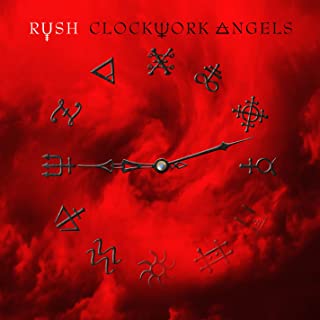
For a band whose US album sales are right up there with the Beatles and the Stones, Rush keep a pretty low profile. But in just the past decade, their mainstream status has noticeably shifted. Having been deeply absorbed by popular culture, 50 years in, Rush have reaped the rewards for being themselves.
And with this cultural rebirth, a creative one. 2007’s Snakes & Arrows was a convincing musical statement, with new producer Nick Raskulinecz encouraging the band to take chances and reconnect with their essence as a progressive rock band. And what better way to seal the deal than to follow that up with their first full concept album.
Neil Peart’s story for Clockwork Angels percolated through many literary seams, notably steampunk. Filtered through the Victorian fiction of HG Wells and Jules Verne, this idea of ‘a future as seen from the past’, had been championed by writers including Peart’s friend, Kevin J Anderson. On Rush’s 20th album this was used, as the drummer put it, to “tell a story set in an alternate timeline, with alchemy, clockwork, and steampunkery”.
So, we followed a character on a quest through an antique sci-fi world teeming with pirates, anarchists, explorers and carnival dwellers. It was a heady theme, and Rush cranked up their nonpareil power trio smarts to set it to some of their toughest music.
Caravan set a swaggering, funky tone. ‘I can’t stop thinking big,’ sang Geddy Lee, establishing the character and the world ‘lit only by fire’. Alex Lifeson’s swathes of crunchy tone and a blues-drenched solo backed this up. Hewn from the type of riff Muse would kill for, BU2B set the story on a cosmological scale, its hard, hyperactive groove leading to the title track, which floated in on exotic tones and shimmering clean guitars before bursting into life.
It was a thoroughly modern record but, as ever, Peart’s ear for the mythic added Xanadu-like grandeur to the music. Seven Cities Of Gold was inspired by tales of Spanish conquistadors, and it was a monolithic, shifting rocker that heralded the character’s entry into the belly of the beast, El Dorado. Blessed with beautiful clean lines and a refrain that ‘Sometimes you have to be wary of the miracle too good to be true’, The Wreckers was accessible, with a light, major-key simplicity (not bad for a song inspired by pirates who deliberately ran ships aground).
Marvel at Clockwork Angels for one or all of its many levels: its literary depth and steampunk cool; its creators’ unity of purpose and preternatural musical sense; its lip-curling rock grooves and girthy production.
In the blue sky of their creative Indian summer, and with a cultural tailwind behind them, Rush channelled the impulse that made them so special all along on a modern progressive album which sat right up there in their canon.
Our score: 9/10
